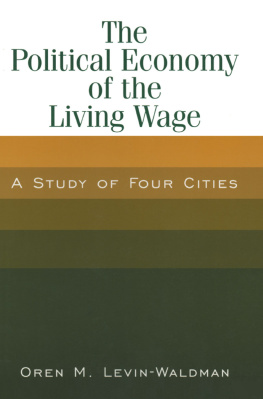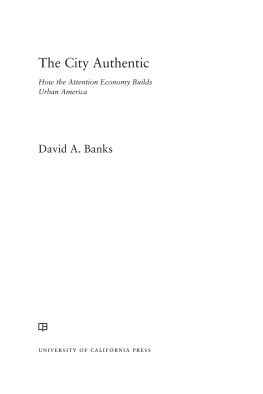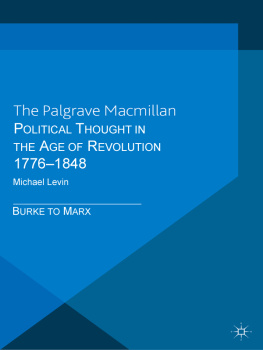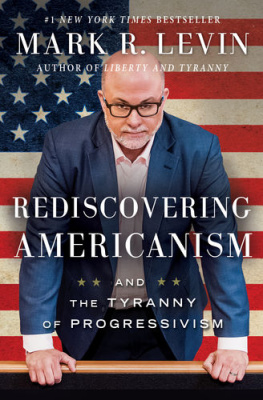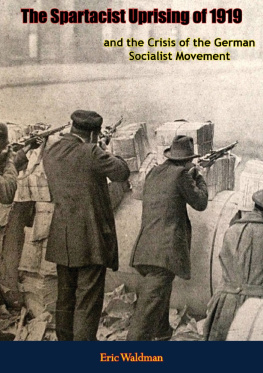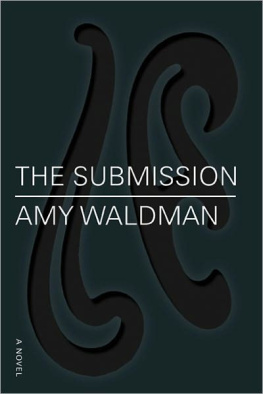Levin-Waldman - The Political Economy of the Living Wage: a Study of Four Cities
Here you can read online Levin-Waldman - The Political Economy of the Living Wage: a Study of Four Cities full text of the book (entire story) in english for free. Download pdf and epub, get meaning, cover and reviews about this ebook. City: United States, year: 2016, publisher: Routledge, genre: Politics. Description of the work, (preface) as well as reviews are available. Best literature library LitArk.com created for fans of good reading and offers a wide selection of genres:
Romance novel
Science fiction
Adventure
Detective
Science
History
Home and family
Prose
Art
Politics
Computer
Non-fiction
Religion
Business
Children
Humor
Choose a favorite category and find really read worthwhile books. Enjoy immersion in the world of imagination, feel the emotions of the characters or learn something new for yourself, make an fascinating discovery.
- Book:The Political Economy of the Living Wage: a Study of Four Cities
- Author:
- Publisher:Routledge
- Genre:
- Year:2016
- City:United States
- Rating:4 / 5
- Favourites:Add to favourites
- Your mark:
- 80
- 1
- 2
- 3
- 4
- 5
The Political Economy of the Living Wage: a Study of Four Cities: summary, description and annotation
We offer to read an annotation, description, summary or preface (depends on what the author of the book "The Political Economy of the Living Wage: a Study of Four Cities" wrote himself). If you haven't found the necessary information about the book — write in the comments, we will try to find it.
Levin-Waldman: author's other books
Who wrote The Political Economy of the Living Wage: a Study of Four Cities? Find out the surname, the name of the author of the book and a list of all author's works by series.
The Political Economy of the Living Wage: a Study of Four Cities — read online for free the complete book (whole text) full work
Below is the text of the book, divided by pages. System saving the place of the last page read, allows you to conveniently read the book "The Political Economy of the Living Wage: a Study of Four Cities" online for free, without having to search again every time where you left off. Put a bookmark, and you can go to the page where you finished reading at any time.
Font size:
Interval:
Bookmark:

The Political Economy of the Living Wage
The Political Economy of the Living Wage
A STUDY OF FOUR CITIES
OREN M. LEVIN-WALDMAN

First published 2005 by M.E. Sharpe
Published 2015 by Routledge
2 Park Square, Milton Park, Abingdon, Oxon OX14 4RN
711 Third Avenue, New York, NY 10017, USA
Routledge is an imprint of the Taylor & Francis Group, an informa business
Copyright 2005 Taylor & Francis. All rights reserved.
No part of this book may be reprinted or reproduced or utilised in any form or by any electronic, mechanical, or other means, now known or hereafter invented, including photocopying and recording, or in any information storage or retrieval system, without permission in writing from the publishers.
Notices
No responsibility is assumed by the publisher for any injury and/or damage to persons or property as a matter of products liability, negligence or otherwise, or from any use of operation of any methods, products, instructions or ideas contained in the material herein.
Practitioners and researchers must always rely on their own experience and knowledge in evaluating and using any information, methods, compounds, or experiments described herein. In using such information or methods they should be mindful of their own safety and the safety of others, including parties for whom they have a professional responsibility.
Product or corporate names may be trademarks or registered trademarks, and are used only for identification and explanation without intent to infringe.
Library of Congress Cataloging-in-Publication Data
Levin-Waldman, Oren M.
The political economy of the living wage : a study of four cities / by Oren M. Levin-Waldman
p. cm.
Includes bibliographical references and index.
ISBN 0-7656-1278-X (hardcover: alk. paper) ISBN 0-7656-1279-8 (pbk.: alk. paper)
1. Living wage movementUnited StatesCase studies. 2. Municipal governmentUnited StatesCase studies. I. Title.
HD4975.L428 2004
331.23dc22
2004016070
ISBN 13: 9780765612793 (pbk)
ISBN 13: 9780765612786 (hbk)
In loving memory of my father
Nahum M. Waldman
Avi Mori HaRav Nahum Meir Ben Yitzchok Dov, ZChrona LVrocha
Contents
Tables
Figure
As of this writing, over one hundred communities across the country have passed living wage ordinances, which at a minimum mandate that firms with contracts to perform municipal services pay their workers a specified minimum wage. For those involved in local campaigns for living wages, the successes that have been achieved are no less than a social movement intended to achieve a measure of economic justice. Workers receiving wage increases as a result will no doubt be better off in most cases. Moreover, many of those employers forced to pay higher wages may also be better off in the long term, as they realize cost savings through productivity gains, reduced turnover, and reduced training and recruitment costs. The living wage is said to be a response to both the declining value of the minimum wage over the last couple of decades and the privatization of municipal services. But what is often missed in the debates over the living wage is that the living wage is also the inevitable by-product of the evolution of urban politics. That is, while the collection of local living wage campaigns across the country may have grown into a national movement, the living wage is at heart an urban issue.
Despite this string of successes, there has been little study of these campaigns from the point of view of grassroots politics and social movements. Increasingly, more and more studies have emerged that focus on the economic impact of living wages on workers, their employers, and communities. These studies, however, do not in the end tell us much about the cultural milieus in which they are framed. Moreover, we know little about what impact living wage policies have on the political landscape, particularly at the local level. While living wage advocates often like to think of these campaigns as being the roots of a larger movement intended to achieve economic justice, a more immediate question is the impact that they have on the shape of the political coalitions that either govern those cities where such ordinances have been passed or that influence and may even affect the outcome of the politics in those communities. To date, the issue of the living wage has not been studied from even the vantage point of general politics, let alone urban politics.
This is rather unfortunate because the living wage appears to have symbolism that evokes protests similar to its more encompassing cousin: the minimum wage. Opponents of living wage ordinances typically argue against them on the grounds that they will kill investment, and hence job creation. As such, they send the wrong message to would-be investors. And to the extent that the living wage may revolve around certain economic realities, they are also highly charged political issues revolving around the politics of investment. Of course, these so-called economic realitiesthe need to attract investmentonly create their own set of political dynamics.
Urban governments often appear to be serving the interests of a small group of business interests, and oftentimes outside interests, at the expense of others because these interests are perceived to be key to obtaining investment, which will ultimately serve the interests of all. This dynamic alone perhaps constitutes the main dialectic of urban life. And yet, to not understand the relationship between grassroots living wage campaigns and the dialectics of urban life is to ultimately miss the point. Living wage campaigns are very much part of the dialectics of urban life, particularly in an environment of increasing capital mobility where cities are forced to compete for investment dollars. And to the extent that the competition for outside investment has in large measure become a defining characteristic of urban politics reflective of each citys respective urban political coalitions, the living wage then is a policy matter that either represents a reaction to a reigning coalition, or perhaps a new one.
This is essentially the critical point about the living wage and living wage politics that unfortunately is missed in much of the current literature. On the contrary, much of the work on the living wage has been done from the perspective of activists involved in the cause of economic justice. From the activist perspective, there are four different objectives. The first has to do with achieving livable wages for those at the bottom of the income distribution, particularly those performing municipal services once performed by better paid unionized municipal workers. The second objective is to compensate for the failure of the federal minimum wage to keep up with the rate of inflation by enacting local ordinances that will ensure livable wages for some. This, of course, is limited in its effect because coverage extends only to those workers employed by firms either with contracts to perform municipal services or firms that may have received financial incentives to invest in the first place. The third objective is to respond to the rising income inequality of the last couple of decades, which has disproportionately affected those at the bottom of the distribution. Although living wages will not even out the income distribution by any significant measure, they can potentially narrow the gap to the extent that they result in the average incomes of those at the bottom of the distribution rising at a higher rate than those at the top. And the fourth objective has to do with organizing low-wage workers, which may potentially have benefits to a union movement otherwise in a state of decline. Living wage campaigns are not necessarily about unionization, although various unions have been involved in these campaigns. Still, proponents of living wages are often quick to note that were it not for the presence of unions, such ordinances may not have been passed. Unions are in some cases a key constituency, but they in and of themselves are not the reason why localities have been able to pass such ordinances. Rather, the quest for living wages is really about the ability of grassroots organizations to mobilize political support behind a cause. And as much as these four objectives may be lofty ones, and perhaps ought to be a driving force in wage policy in the United States, the activist perspective misses the pointthat living wages have been passed within a particular economic and political context. Of course, none of this negates that these objectives may become necessary responses, and even policy objectives unto themselves, to the new urban reality. But to focus solely on the justice arguments for why these objectives ought to be achieved unfortunately does not help us understand how we got into this position in the first place. And in the end this lack of understanding may also result in policy failure, both in terms of strategy and substance.
Next pageFont size:
Interval:
Bookmark:
Similar books «The Political Economy of the Living Wage: a Study of Four Cities»
Look at similar books to The Political Economy of the Living Wage: a Study of Four Cities. We have selected literature similar in name and meaning in the hope of providing readers with more options to find new, interesting, not yet read works.
Discussion, reviews of the book The Political Economy of the Living Wage: a Study of Four Cities and just readers' own opinions. Leave your comments, write what you think about the work, its meaning or the main characters. Specify what exactly you liked and what you didn't like, and why you think so.

